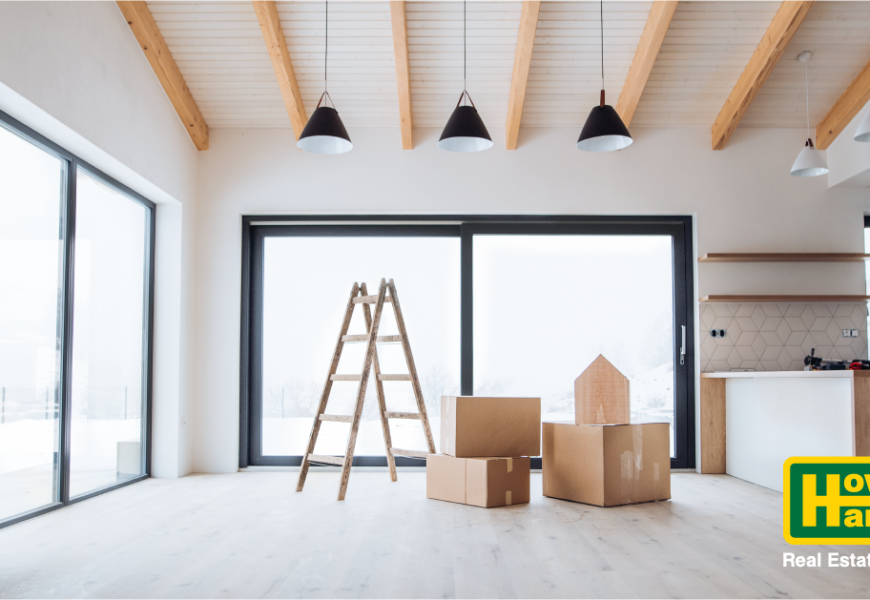When you think about moving, you probably think about long, stressful hours of hard work that go into the lengthy process. Even if you’re just moving to a different part of a particular city, moving creates lots of work. But when you’re moving not just to a new house, but to a new state, that makes the process even more complex!
The good news is that if you stay organized and remember to properly address several key parts of the process, moving to a new state is perfectly manageable. To help you get started and prepare, we’ve put together a helpful list of things you need to consider:
Are You Renting or Buying?
If you’re moving to a new state, you should consider whether you’re renting or buying your next residence. If you’re moving due to a temporary work situation, renting might already make more sense. However, there’s also the possibility that the more you learn about your new state, you might find another place that you love even more at a later date.
If you are unsure about whether to rent or to buy, be sure to talk to a real estate agent. An agent can guide you through the search process and use their local knowledge of an area to give you a clear picture of what to expect. They can also answer your questions and use their experience to help you determine if renting or buying makes more sense at this stage in your life.
How Will You Handle Your Belongings During The Move – And What Help Can You Afford?
Getting your things from your current home to your new home is one of the bigger parts of a move, and requires some planning as a result. Not only do you need to consider what moving assistance will be the most helpful – you also need to consider the cost of your options and budget accordingly.
As you consider how to move your household items, be sure to consider the pros, cons, and costs of the following:
- Hiring professional movers – your items will be properly packed and shipped to your new residence.
- Hiring freight moving companies – you will be able to pack your belongings in a trailer, which will be picked up and dropped off at your new residence.
- Renting a truck and moving yourself – you will be responsible for packing and shipping all of your belongings yourself.
Your budget and moving timeline will both affect what method you choose, so be sure to give yourself time to make the best decision for you!
What Is Your Packing Plan?
Once you know how your items are being moved, you need to plan how those items will be packed. Packing takes time, so it’s important to map out what you will do when, which will allow you to stay on track and meet any deadlines leading up to moving day.
Some general packing recommendations include:
- Pack non-essential things that you’re the least likely to need in the near future first. These include books, home décor pieces, and electronics.
- Pack essential items last. Kitchenware and toiletries are examples of things that you’ll need to use until the last minute.
- Pack important documents and records in a separate, clearly labeled box, so that you do not lose track of them.
- Donate items that you no longer use or will not use at your new home – this way, you’ll have less to pack while giving your unneeded belongings to someone who can use them!
Have You Notified Important Parties About Your Move?
If you’ve moved before, you know that a lot of people and companies need to be informed that you’ll be residing at a new address. This is especially true when you move out of state, since the process includes some additional paperwork and registrations. So be sure to remember to notify the following at the appropriate time:
- Your utility companies
- Your bank
- Your credit card companies
- Your insurance and medical care providers
- Your landlord, if you have one
- Your local clubs, gyms, and other memberships
- Active subscriptions that ship items to your address
- The post office
- The IRS
- Your local voting registration organization
Once you arrive in your new state, you also need to notify local officials about your arrival, so that you can register as a resident and be taxed accordingly. Check your new state’s government website to figure out how to do this, and consider visiting your local town hall just to confirm that your name and address are correctly processed.
When Will You Update Your Driver’s License?
Moving to a different state typically requires that you register for a new driver’s license associated with that state. The good news is that you might be able to make this update online, without a trip to the local Department of Motor Vehicles (DMV) office! The requirements for the change will vary from state to state, so it’s important to visit your local DMV website to ensure that you understand the state’s requirements – including any time requirements – to transfer your license.
Is Your Pet Ready For The Move?
If you own a pet, you have to take some additional measures as part of your move. You may have to consider exactly how your pet will make the journey with you, depending on what kind of animal you own. You may also need to register your best friend with your new city or county. These requirements vary depending on the state, so be sure to research any requirements you’ll need to complete as a pet owner before moving day!
By answering all of these questions, you can begin preparing your personal moving checklist to ensure you stay on track and tackle the things that are important to you. If you need additional moving resources, you can also use our very own moving checklist! You can also read more about what to do once you’ve arrived at your new home here.
Are you currently hunting for a new house? We can help you find your dream home! Our expert real estate agents can help you sell your current home and navigate the current housing market as a buyer. Our agents are ready and waiting to help you move into your new home. Contact an agent near you to learn more and get started!











Great blog! So many things to take note of when one is making such a large shift in their lives. One other tip I would add is to separately pack your items that you would need the day(s) of the move. This may include your kid’s favorite toys, your sleepwear, toiletries, snacks and other essentials you’ll need during and shortly after your move. No one wants to end the busy day of moving by sorting through boxes and boxes of things to just find your toothbrush or pillow for the night.